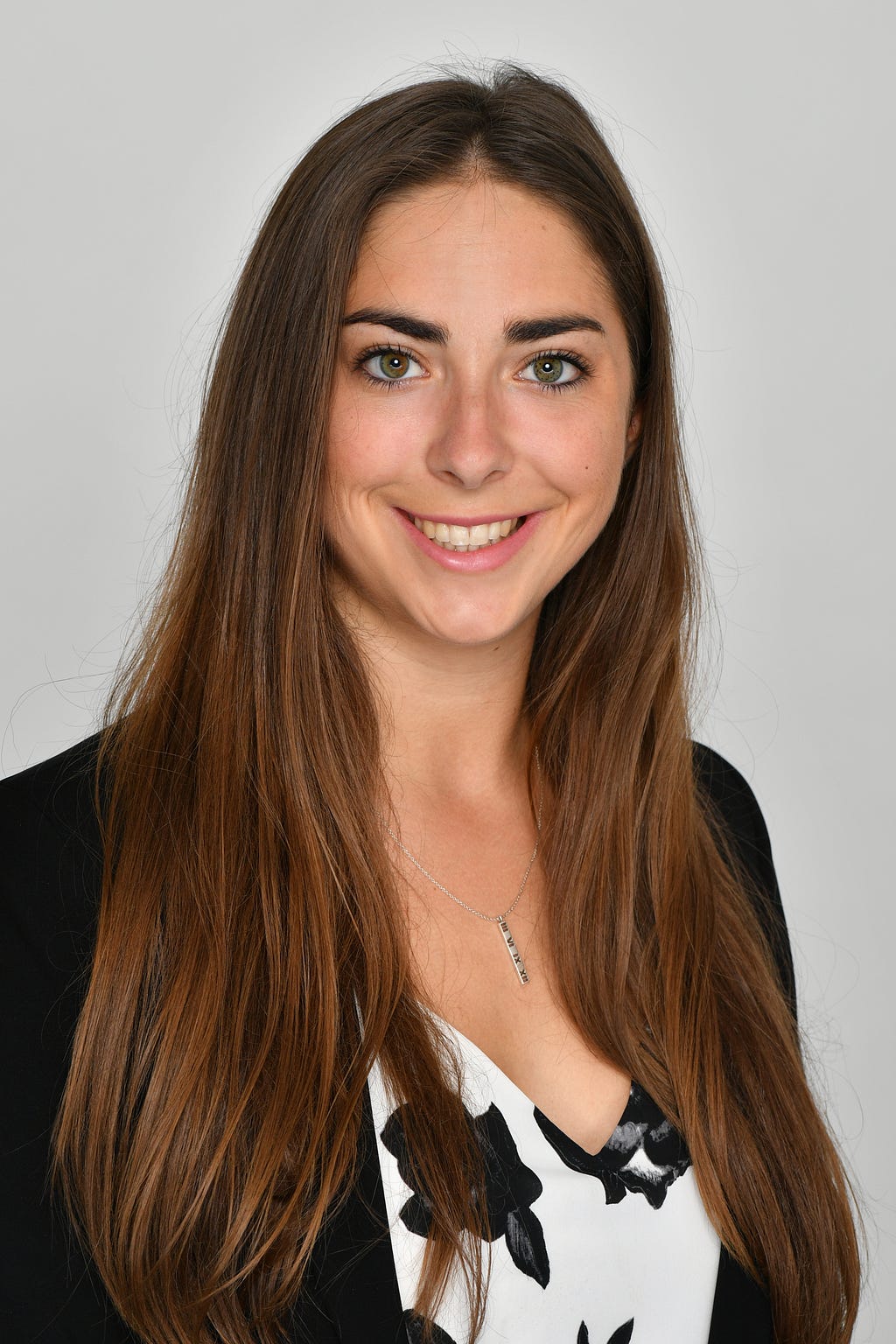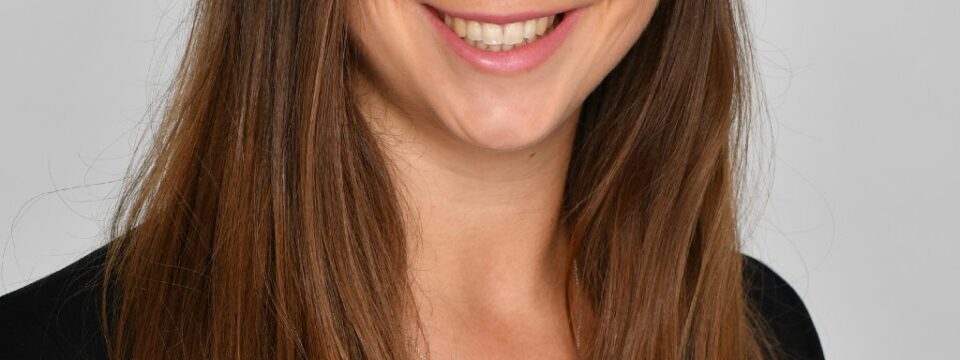Unstoppable: How Leah Stavenhagen Of “Her ALS Story” Has Redefined Success While Navigating Society With ALS

It’s not because you can’t see a disability, that it doesn’t exist — You can never know what others are going through. Should someone ask for help, don’t question why. It is so easy to make the awkward mistake of doubting someone in need. Expect the best, not the worst from others.
As a part of our “Unstoppable” series, I had the pleasure of interviewing Leah Stavenhagen.
Leah is a globetrotter who has spent the last decade bouncing between Europe and the States. After receiving her Master’s at age 26, she began a career in management consulting in Paris. At the same time, she learned that she had ALS. Now, two and a half years later, she is recently married and focuses her energy on advocacy work. Last spring, she formed Her ALS Story to create a network for young females with ALS to lean into.
Thank you so much for doing this with us! It is really an honor. Our readers would love to get to know you a bit better. Can you share your “backstory” with us?
As a child, I moved around quite a bit, spending formative years in Olney, Maryland and Copenhagen, Denmark. I spent my time balancing synchronized swimming, dance, friends and school. As a teenager in Denmark, I fell in love with the European way of life and was eager to find a way to enhance this part of my identity while holding only an American passport. At the University of Michigan, I triple majored in Comparative Literature, Political Science and French. This led me to then begin my professional life in New York City before finding an opportunity to return to Europe. Alongside my French boyfriend, I quickly adapted to life in Paris, perfecting my French and enrolling in their top business school. While finishing my Master’s, I learned that I likely had ALS, a formidable, but unfamiliar disease to me.
Do you feel comfortable sharing with us the story surrounding how you became disabled or became ill? What mental shift did you make to not let that “stop you”?
Of course. Early in 2019, I went to the doctor because I noticed that my body felt weaker than it should be. I had always been very active, so I couldn’t quite make sense of why my balance felt off during yoga or why it felt like my ankles would break when I tried to run. The doctor noticed that when she tapped my knee with her small mallet, the knee-jerk reflex was absent. I was referred to a neurologist and subsequently sent for an EMG, a bizarre test in which needles are inserted all over your body to measure muscle activity. The test indicated that I likely had ALS, a disease that I didn’t recognize. A quick Google search, though, led me to a picture of Stephen Hawking and I instantly thought back to watching “The Theory of Everything” just a few months earlier with my family. At the time, my brain hadn’t even processed the name of his disease. Just a little while later, this disease would become a defining aspect of my life; the letters A-L-S jumping out at me everywhere I looked.
As a young woman with the sporadic form of this rare disease, doctors do not know why I have it or what could have caused it. I have always been tenacious and proactive, eager to do things for a better tomorrow. It was important for me to get over the ‘Why me?’ and focus on the bigger picture. I am still the same person that I was before, but I have been taught the importance of living in the present and spending my energy on things I find purposeful. Today, ALS is my reality and it is important for me to face it head-on.
Can you tell our readers about the accomplishments you have been able to make despite your disability or illness ?
While first dealing with my diagnosis, I yearned to find others like me so I wouldn’t feel so alone in this disease, but came up empty-handed. I knew there must be other young women facing ALS, but had no way of connecting with them. Consequently, I worked with I AM ALS to compile stories of women diagnosed with ALS before their 35th birthday and founded Her ALS Story in April, 2021. Today we have over 30 members and have created a community to bring women together to support each other and, at the same time, raise awareness that this disease can affect anyone. We aim to refute the stereotype that ALS is an older white man’s disease and believe that as young women who are constantly faced with the harsh realities of ALS, our voices are especially powerful in revolutionizing treatment options and finding a cure.
Additionally, on a more personal note, I married my boyfriend of 6 years, Hugo, in October of 2020. Though both Covid and ALS meant that this wedding was different from what I might have imagined, it was a truly beautiful and magical occasion. We overcame curfew restrictions, closed borders and limits on group size to celebrate with loved ones in the heart of Paris.
What advice would you give to other people who have disabilities or limitations?
Find a strong community and take advantage of it. Living with a disease or disability can be incredibly isolating, so it is important to expand your world and find others who fully comprehend what you are going through. There are so many incredible people out there — give them the opportunity to help you.
None of us are able to achieve success without some help along the way. Is there a particular person who you are grateful towards who helped get you to where you are?
Originally diagnosed in France, I was told that there were no real treatments nor clinical trials for me. This juxtaposed my experience at Columbia Medical Center where I was immediately met with a ‘can-do’ attitude and treatment ideas. I am grateful for Dr. Neil Shneider and his team as they have gone above and beyond for me. When a clinical trial proved long and difficult to set up, Dr. Shneider and Cellenkos, a small biotech company based in Houston, set up an Expanded Access Program so that I could be the first ALS patient to receive cord blood T-Reg cell therapy. Amidst a grave diagnosis, they have been able to provide me with hope — the most important thing.
How have you used your success to bring goodness to the world?
Years ago, while procrastinating on school work, I stumbled upon the Audrey Hepburn quotation, “The best thing to hold onto in life is each other.” Receiving a fatal diagnosis can be overwhelmingly isolating. To combat this, Her ALS Story has created a new platform for young women facing this disease and is effectively bringing them together. Having lived through this, I know that there was nothing like this out there before. If this group helps even a few people to hold onto each other and feel less alone then I believe that it is a true success.
Can you share “5 things I wish people understood or knew about people with physical limitations” and why.
- Ask questions — Ask away because it is normal to have questions about a situation that you are unfamiliar with. In fact, it shows that you care. Awareness is crucial to finding treatments and cures for ALS and many other diseases, so ask questions to better understand and become a better ally and resource.
- Disabilities are not taboo — It is important to normalize living with disabilities because one in four American adults have one. This means that inclusivity and diversity campaigns should always include people with disabilities because recognition is crucial to building a society that is accommodating for everyone.
- Never infantilize others — Living with a disability means that you need more help than you might have otherwise. Do not mistake needing help for needing to be babied. Though someone might need help getting into a shop and having the door held, this doesn’t mean they can’t navigate the store and have a quicker, sharper mind than someone else.
- Nobody wants your pity — Having a disability doesn’t mean you don’t have a wonderful life. There are plenty of people with disabilities who live more fully than the average able-bodied person. Pity tends to be the result of a comparison with another’s ‘better’ life or situation, and this, in fact, may have no relation to reality.
- It’s not because you can’t see a disability, that it doesn’t exist — You can never know what others are going through. Should someone ask for help, don’t question why. It is so easy to make the awkward mistake of doubting someone in need. Expect the best, not the worst from others.
Can you please give us your favorite “Life Lesson Quote”?
‘Tell me, what is it you plan to do with your one wild and precious life?’ ~ Mary Oliver
We are very blessed that some of the biggest names in Business, VC funding, Sports, and Entertainment read this column. Is there a person in the world, or in the US whom you would love to have a private breakfast or lunch with, and why? He or she might just see this 🙂
This is a tough one. I would love to have a chat with Jennifer Hyman, co-founder and CEO of Rent the Runway. From the moment I heard of her business, I was enamored by the ingenuity of it — so much so that I did my Master’s thesis on her concept and the digitalization of modern shopping trends. Though still intrigued by this model, I would also want to discuss adaptive clothing and how it can fit into the future of fashion.
This was very inspiring. Thank you so much for joining us!
Unstoppable: How Leah Stavenhagen of Her ALS Story has redefined success while navigating society… was originally published in Authority Magazine on Medium, where people are continuing the conversation by highlighting and responding to this story.
